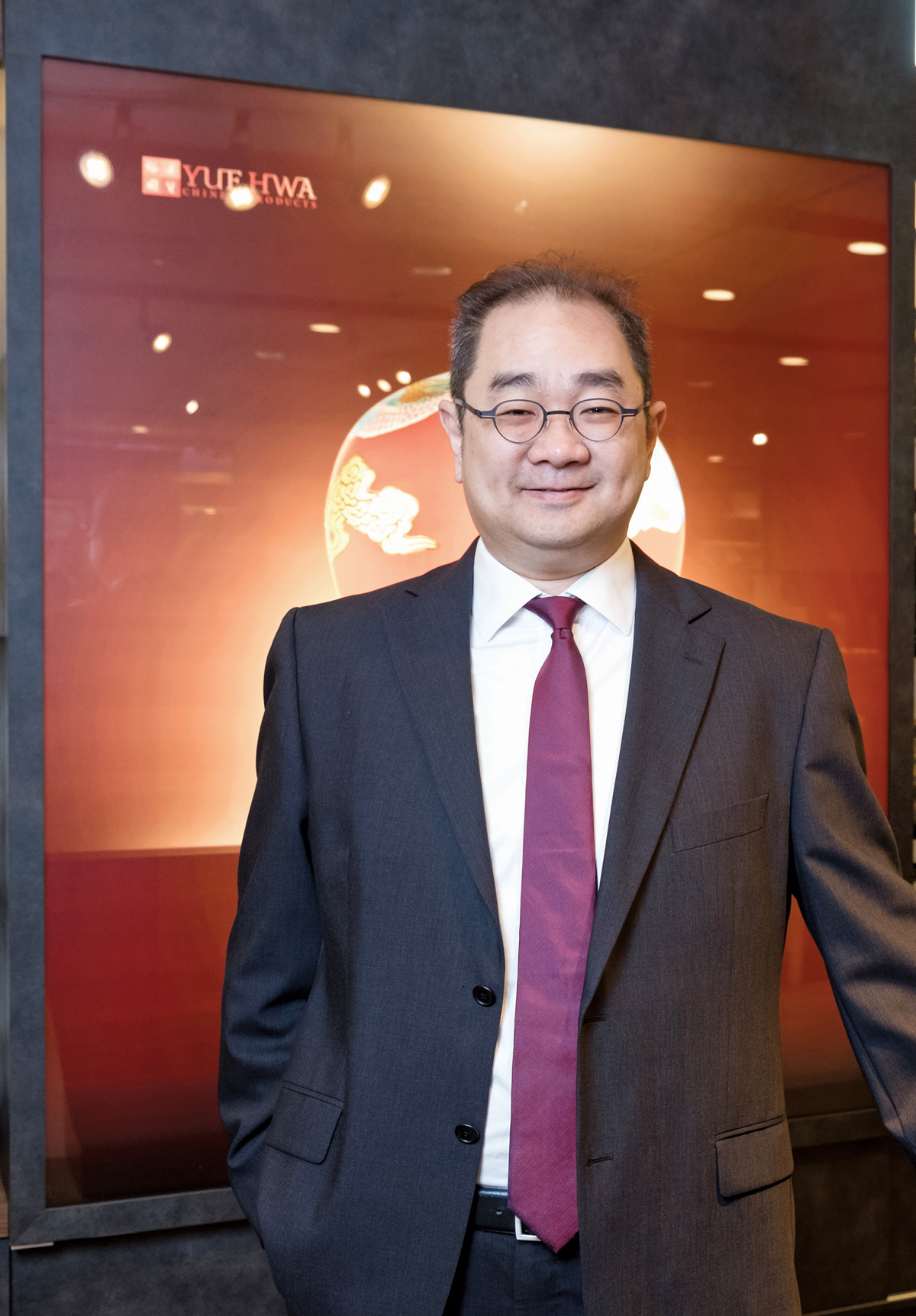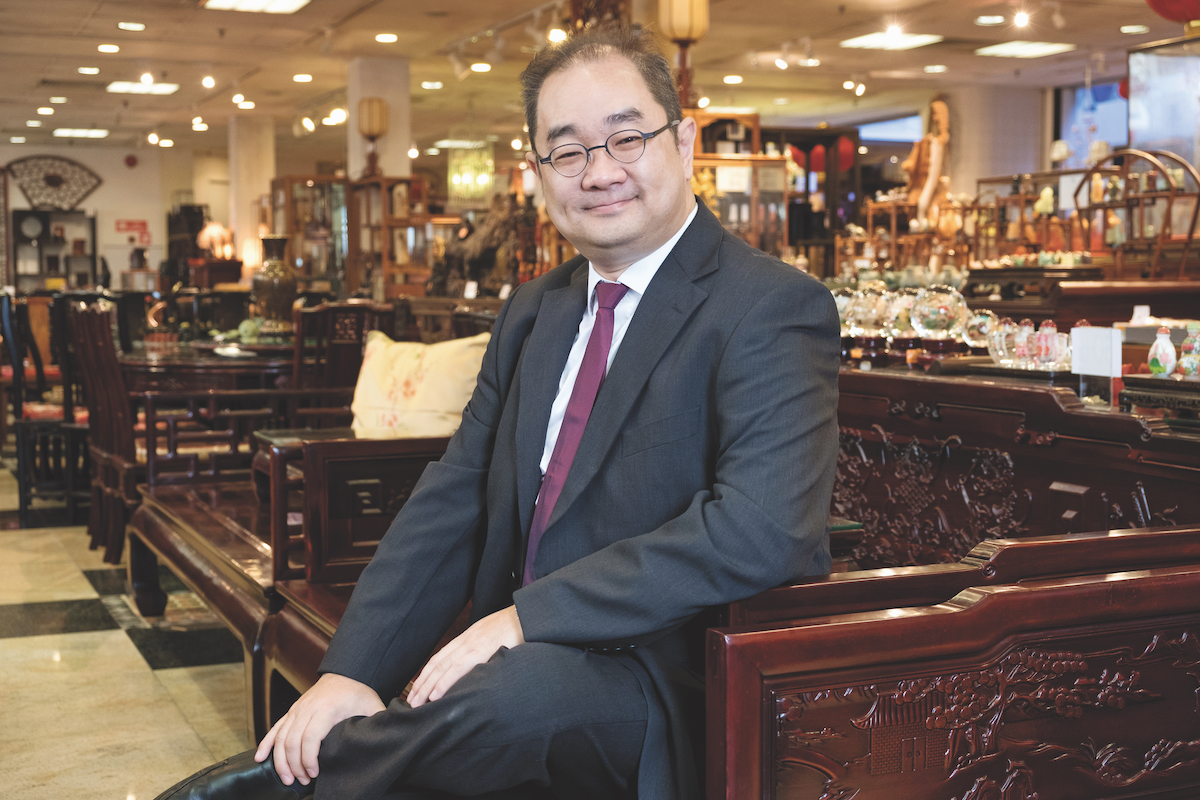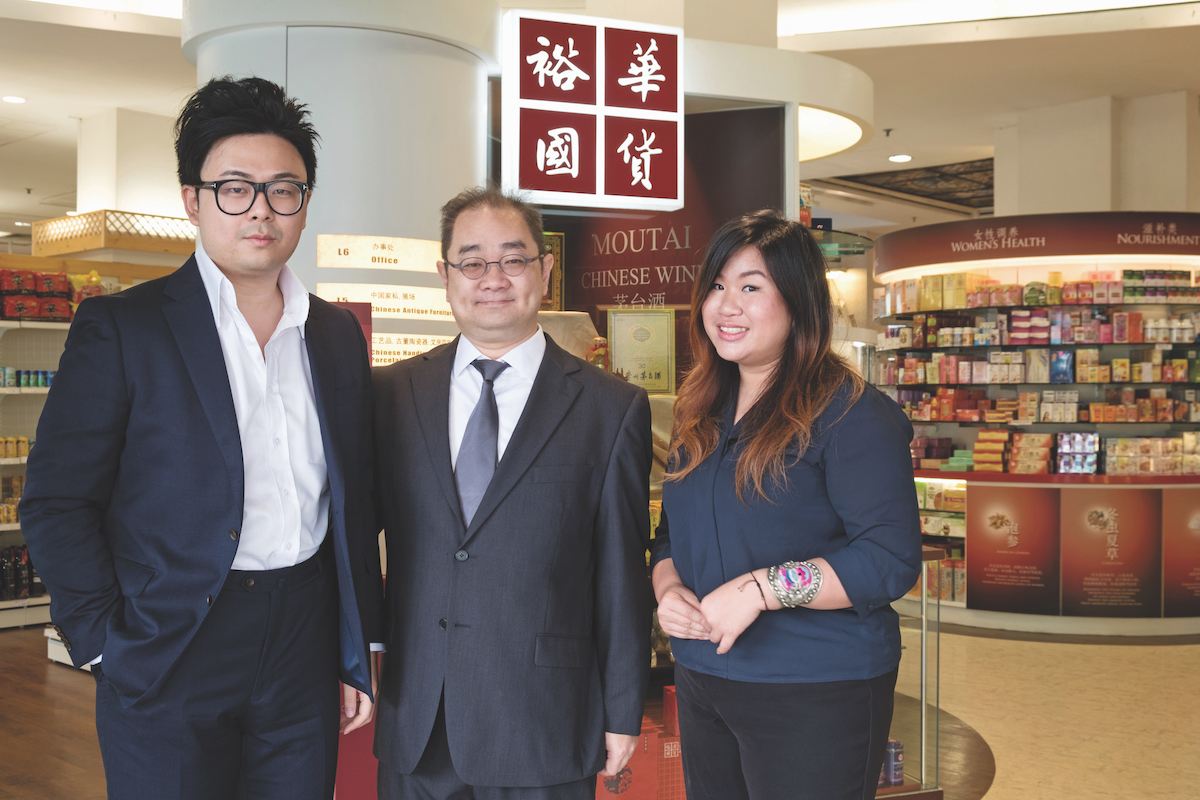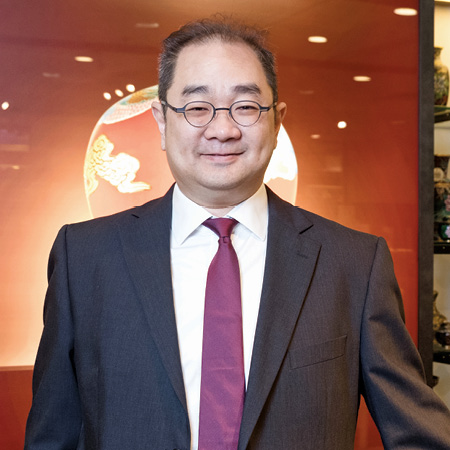When global engineer Jacob Yu was relocated from Australia to Hong Kong, joining the local family business was nowhere on his radar. After all, Yue Hwa, the store specialising in Chinese products, was selling traditional goods that he couldn’t really relate to. Jacob’s world was vastly different. Born and raised in Sydney and a graduate of the University of Technology Sydney, Jacob was embroiled in the culture of multinational corporations where chasing the dollar was paramount, competition fierce, and employees more expendable. His family’s company, although expansive, exercised a gentler approach. Yue Hwa was a proud, iconic store layered in history and strong on loyalty. Traditional values were at the forefront, with devoted long-term staff cultivating a sense of security, if not predictability.
Jacob was happily settled into his new role at Intel when the call came. His family needed someone who understood advancements in technology to oversee changes. That someone was Jacob. “I came aboard reluctantly,” Jacob admits. “When you work in multinationals, everything is so profit-oriented, so goal-oriented. It’s very direct. But when you join a Hong Kong family business, there’s a lot more harmony involved in the culture. It was a huge cultural shock, a bit of an East-meets-West for me, and it took some adjusting.”

A balance between harmony and ambition
Jacob certainly welcomes harmony in the workplace, but his corporate eye also recognises that ambition is never triggered when employees feel too comfortable in a job. “Normally in the service industry, you have very high turnover, but a lot of our staff have worked for the company for 30 or 40 years, which is of course evidence of how harmonious the culture is. But if it’s too harmonious, you don’t become goal-oriented.”
For Jacob, harmony and goals are at extreme ends of the scale. Both are clearly advantageous to productivity, but often fail when implemented independently. “When you’re direct and goal-oriented, you can burn a lot of bridges,” Jacob says. “Meanwhile, at the other end of the spectrum, you can be so harmonious, you just talk and talk and nothing gets done. There’s no constructive feedback, and that unfortunately can lead to a comfort zone where the lack of motivation or innovation doesn’t drive productivity.” Grappling to find a balance between preserving a respect for the old ways and introducing change, Jacob considered leaving. “But as I started to understand the old culture and appreciate aspects of it, I discovered how to retain it and change bits of it to make it even better. It came down to empowering our service staff with ambition, while still keeping that sense of all being an extended family.”
Jacob’s perseverance paid off and change was gradually rolled out with the company evolving not only culturally but technically. It was time to target Singapore where the first Yue Hwa store was established 20 years ago. “I stuck my hand up and said, ‘Let’s give it a try’.”
Relishing the role
Four years later, Jacob relishes his role as the managing director of Yue Hwa Chinese Products Emporium, overseeing 4 stores in Chinatown, Eastpoint Mall, Jurong Point and Kovan Heartland Mall. Yue Hwa is Singapore’s only department store specialising in Chinese food, medicine, silk, antiques and gifts.
The flagship store is a city landmark, housed in the former Nam Tin Hotel right in the heart of Singapore’s Chinatown. It combines both contemporary and original architecture, featuring screen walls and stained glass skylights, beautifully complementing the building’s rich historical character.

When you’re direct and goal-oriented, you can burn a lot of bridges. Meanwhile, at the other end of the spectrum, you can be so harmonious, you just talk and talk and nothing gets done. – Jacob Yu
“Singapore is a mix between Australia and Hong Kong, so it suits my lifestyle a lot better,” he says. “We’re onto our third generation now. Cousins have arrived from Australia with specialty skills in accounting, investment and retail. They’re all keen and full of experience, but they faced the same culture shock as I did. They’re adapting, though.”
Four key values
Jacob’s first task when he arrived in Singapore was to put pen to paper and implement values which he knew would merge the old culture with the new among his employees. After all, it succeeded in extensions and renovations to the Chinatown building; why couldn’t the same principle apply to the staff?

“I have 4 key values,” he says. “The first is to have our people, as one company, reminiscent of our existing one-family culture. The second is to make it a great place to work, and the third is to have constructive feedback. Feedback is so important. The 4th is to live a life of passion and optimism, because we want our staff to have some fire and ambition and not be afraid to show it.”
Jacob says he’s seen the values being absorbed and has witnessed first-hand a gradual change in mindset. “An open mindset has allowed us to realise creative and productive gains in operations, whether due to a change in business process or the implementation of an innovative technology. Rather than having staff sift through pages of data, we have a heat map that summarises the performance of products on the floor plan.”
It’s an opportune time for Yue Hwa, especially when ecommerce will change the retail experience for the better. “Ecommerce will not be the end of traditional retail; instead, it’s more about unifying both into a seamless experience for the customer,” Jacob notes. “Then finally, through teamwork, we expect to launch our customer-centric online/offline solution in Q3 of 2017. It’s the people who are our best asset.”



